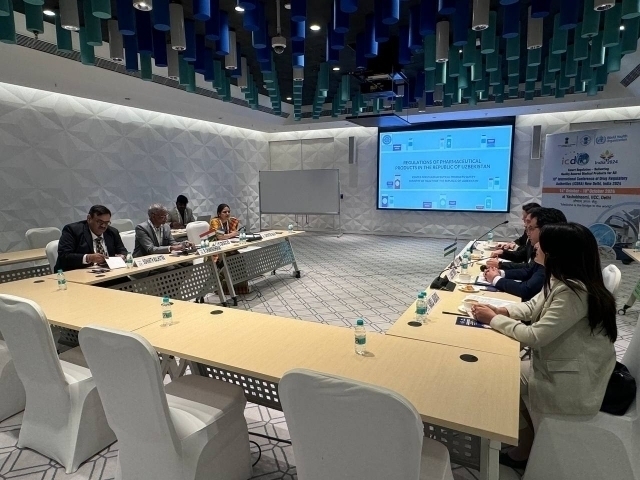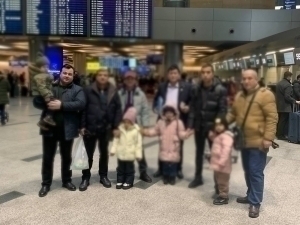Uzbekistan and India address pharmaceutical safety concerns after “Dok-1 Max” crisis
Local
−
18 October 2024 4842 3 minutes
Alisher Temirov, director of the Pharmaceutical Products Safety Center of Uzbekistan, discussed the quality and safety of pharmaceutical products with Ranga Chandrashekhar, a representative of India's Central Organization for Control of Medicines Standards (CDSCO). This was reported by the Center for the Safety of Pharmaceutical Products.
According to him, on October 16 of this year, representatives of the Uzbek delegation held a meeting with the officials of India's Central Drug Control Organization (CDSCO). During the meeting, the possibilities of developing the pharmacocontrol system, reducing the side effects of pharmaceutical products, and preventing potential risks were considered.
"In this direction, the importance of ensuring public health by strengthening international cooperation was noted. Also, the director of the center Alisher Temirov emphasized the importance of developing effective mechanisms to prevent the entry of low-quality and counterfeit drugs into the pharmaceutical market of Uzbekistan, the need to establish specific measures in this regard, and close cooperation in verifying the authenticity of regulatory documents.
The Indian side expressed its readiness to further improve its internal control mechanisms and strengthen cooperation with the Center to prevent pharmaceutical products that have not passed quality control from entering the market of Uzbekistan.
At the end of the negotiations, both sides agreed to sign a joint memorandum on establishing cooperation in the above-mentioned directions.
For information, in December 2022, a total of about 70 children died from Indian "Dok-1 Max" tablets and syrup in Uzbekistan. The sale of this drug was completely stopped, and a criminal case was initiated. At the end of the considered court case, a total of 19 people were punished.
Among them is Singh Raghvendra Pratap, who was born in the Republic of India in 1972, worked as a director of "Kuramax Medical" LLC, and is charged under Article 184, Part 3, Article 186-3, Part 4 "a", "b" of the Criminal Code. ” clauses, Article 211, Part 3, Clause “a”, Article 213, Part 3, Clause “a” and Article 228, Clauses 2, “a”, “b”, Part 3 was found and sentenced to 20 years of imprisonment. It is prescribed to serve the appointed sentence in colonies of general order. After serving the sentence, Singh Raghvendra Pratap, an Indian citizen, was ordered to be deported from the Republic of Uzbekistan.
We remind you that in February of this year, QALAMPIR.UZ prepared a special report about the sentencing of the guilty parties in the "Dok-1 Max" case.
Live
All



